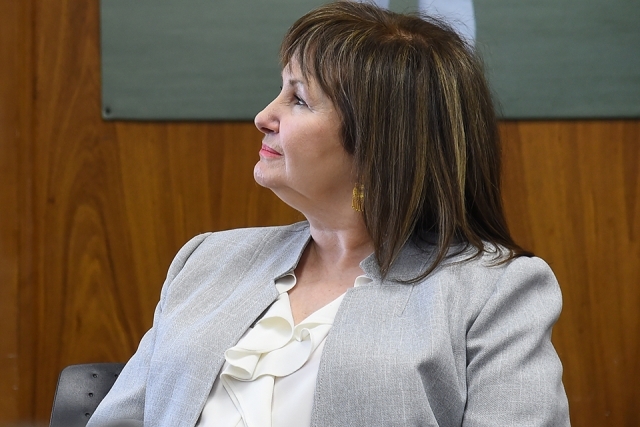
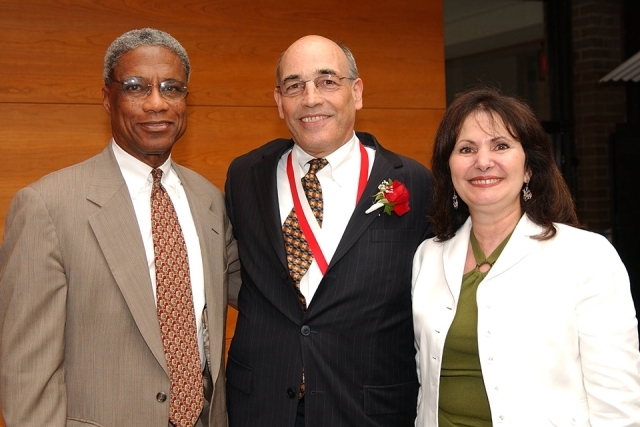
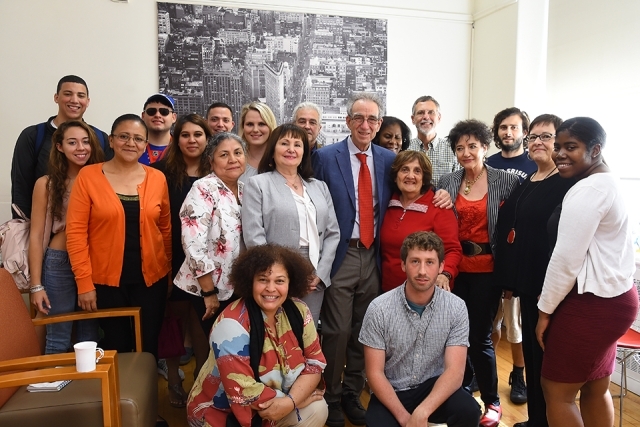
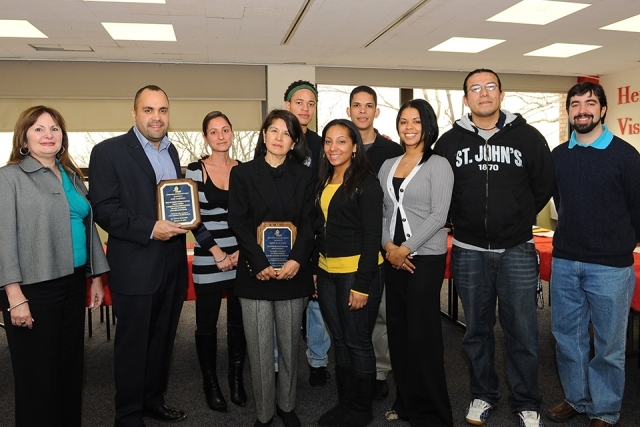
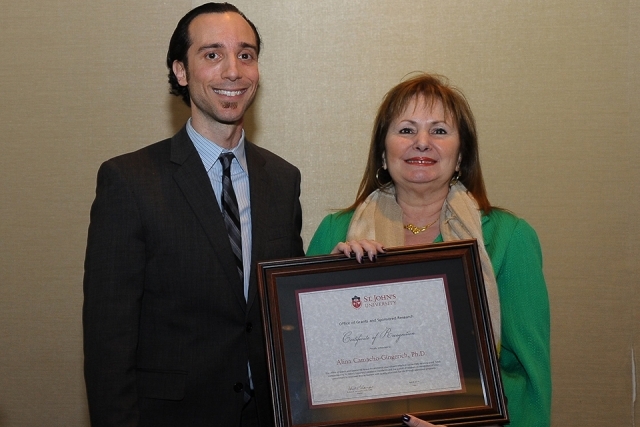
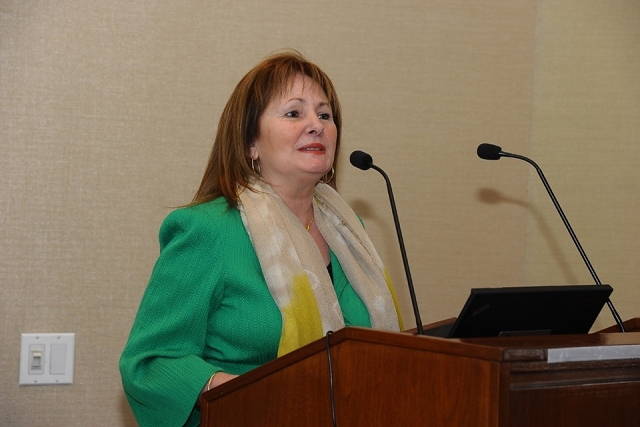






Alina Camacho-Gingerich, Ph.D., has never forgotten her Cuban roots. Forced to leave her home country twice, she settled in the US more than 50 years ago, and became a leading scholar of Latin American literature but, perhaps more importantly, a tireless advocate for immigrants like herself, who come to this country in search of a better life.
Dr. Camacho-Gingerich is Professor and Chair of the Department of Languages and Literatures, and Director of the Center for Latin American and Caribbean Studies (CLACS) at St. John’s University. CLACS is composed of students, faculty, administrators, and scholars from all disciplines and schools of the University, whose interdisciplinary research, teaching, and professional involvement demonstrate a serious commitment to the study of Latin America, the Caribbean, and Latinos in the US.
“I became very interested in Latin American studies, with a multidisciplinary focus,” she observed. While literature is her main focus, her research spans history, sociology, linguistics, and politics. This research, coupled with her own immigrant background, created a deep interest within her around Latin American issues.
With a large catalogue of publications centering on Latin American studies to her credit, Dr. Camacho-Gingerich arrived at St. John’s in 1985 and began organizing events around these topics, inviting prominent political figures and writers to speak. Her work caught the attention of the late Tony Bonaparte, Ph.D., former Provost of St. John’s, and he asked her to create a Latin American Studies program.
Created in 1994, CLACS offers an advanced certificate in Latin American and Caribbean Studies for students who want to learn about those cultures and societies, as well as for those who are considering a professional career with involvement in the Latin American and Caribbean area.
For many years now, immigrants and migration issues have become a priority for Dr. Camacho-Gingerich and CLACS. An initial grant from the Verizon Foundation was followed by a number of others, most significantly an ongoing grant from the NYC Department of Youth and Community Development (DYCD ) devoted to adult literacy.
These grants, in the spirit of the University’s Vincentian Mission, offer educational opportunities to some of the most economically disadvantaged members of our surrounding communities. The funding provides literacy and English language services for adults who meet certain income guidelines. It provides full instructional and support services to anyone over the age of 18 who is not enrolled, or required to be enrolled, in school.
The grant, known as “Helping Our Communities Help Themselves,” provides for the hiring of qualified instructors to teach these adult students. In addition, CLACS-affiliated faculty provide numerous workshops in different disciplines, such as mathematics, education, psychology, computer science, and social studies.
“We have been funded continuously for many years, and I was afraid this year we might lose funding because of the pandemic,” Dr. Camacho-Gingerich noted. Happily, CLACS received funding for the program again this year.
The tools this program gives students are even more important than a financial donation. “It is not a handout,” she stressed. “These are hardworking people with difficult jobs who then come to St. John’s after work (now they meet online) to develop these skills.”
In addition to these grants, in conjunction with other units and departments of the University, and together also with diplomatic missions and community organizations, CLACS organizes multidisciplinary annual conferences that explore the issues and obstacles that immigrants face worldwide, in the hope of providing possible solutions.
Dr. Camacho-Gingerich stressed that the pandemic has hit the immigrant population very hard. “Of my very varied and full academic life, this has been the most emotional experience for me. Their strength and resilience are incredible. As difficult as we think we may have it, they are in the worst possible situation.”
She is on the board of directors and trustees of several academic and cultural community organizations and is active in numerous professional organizations, including the Latin American Studies Association, the International Institute of Ibero-American Literature, the Modern Language Association, and the Hispanic Literary and Cultural Institute, among many others.
“I consider myself very fortunate because the work we do fits perfectly with the Vincentian mission of St. John’s,” Dr. Camacho-Gingerich said, adding that she is grateful for the tireless support of the administration her work has garnered. “Working in this community has been very moving.”
